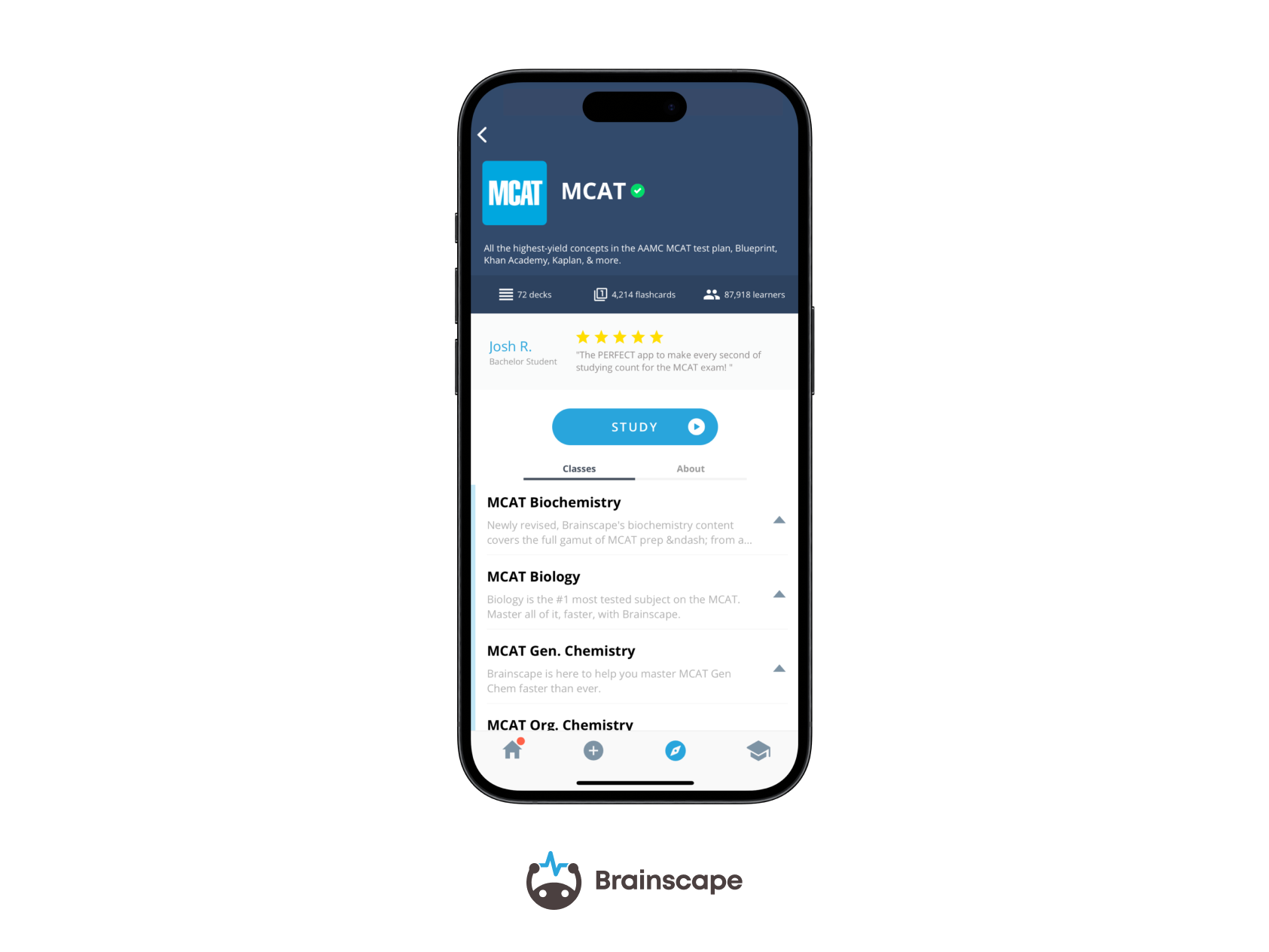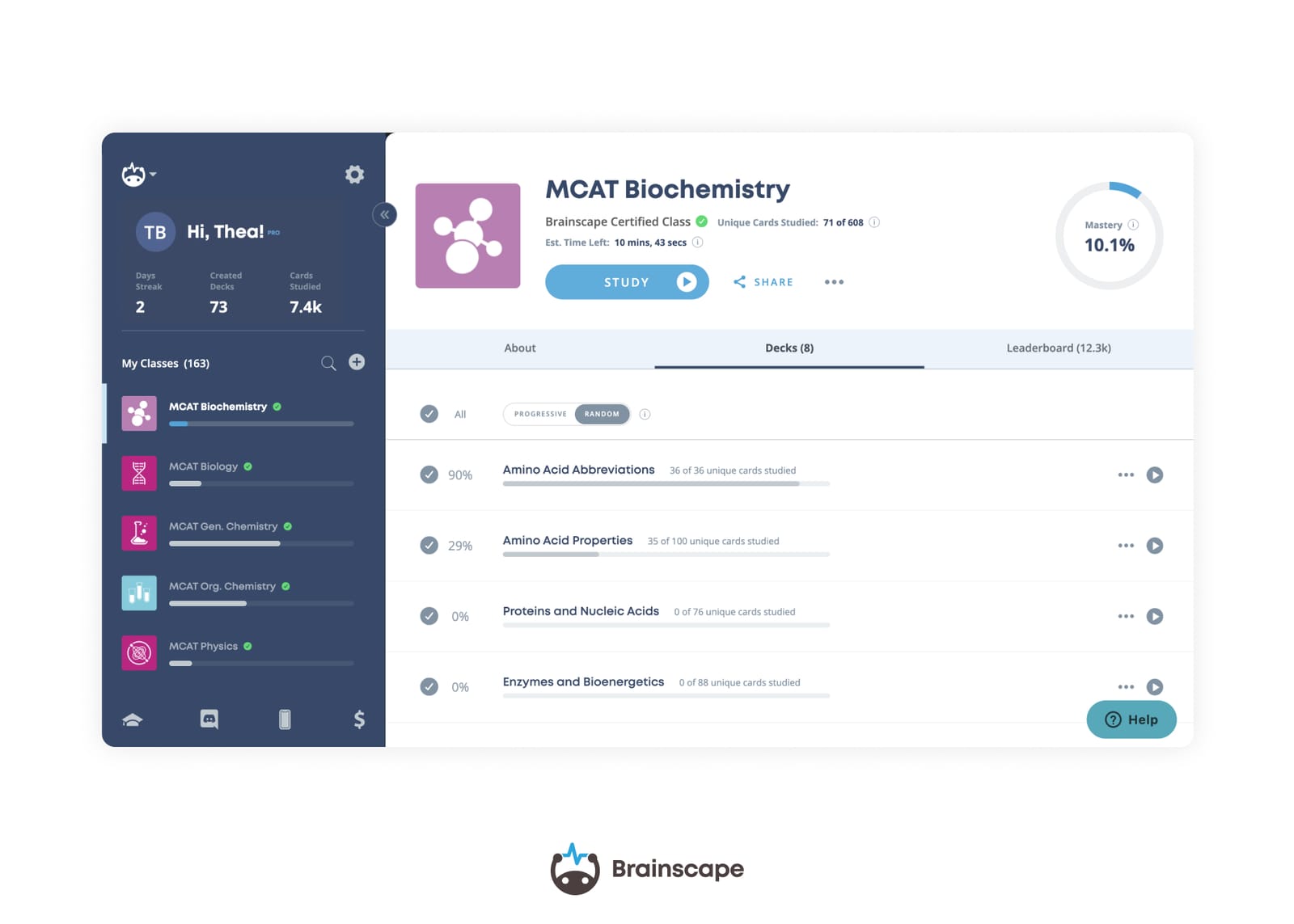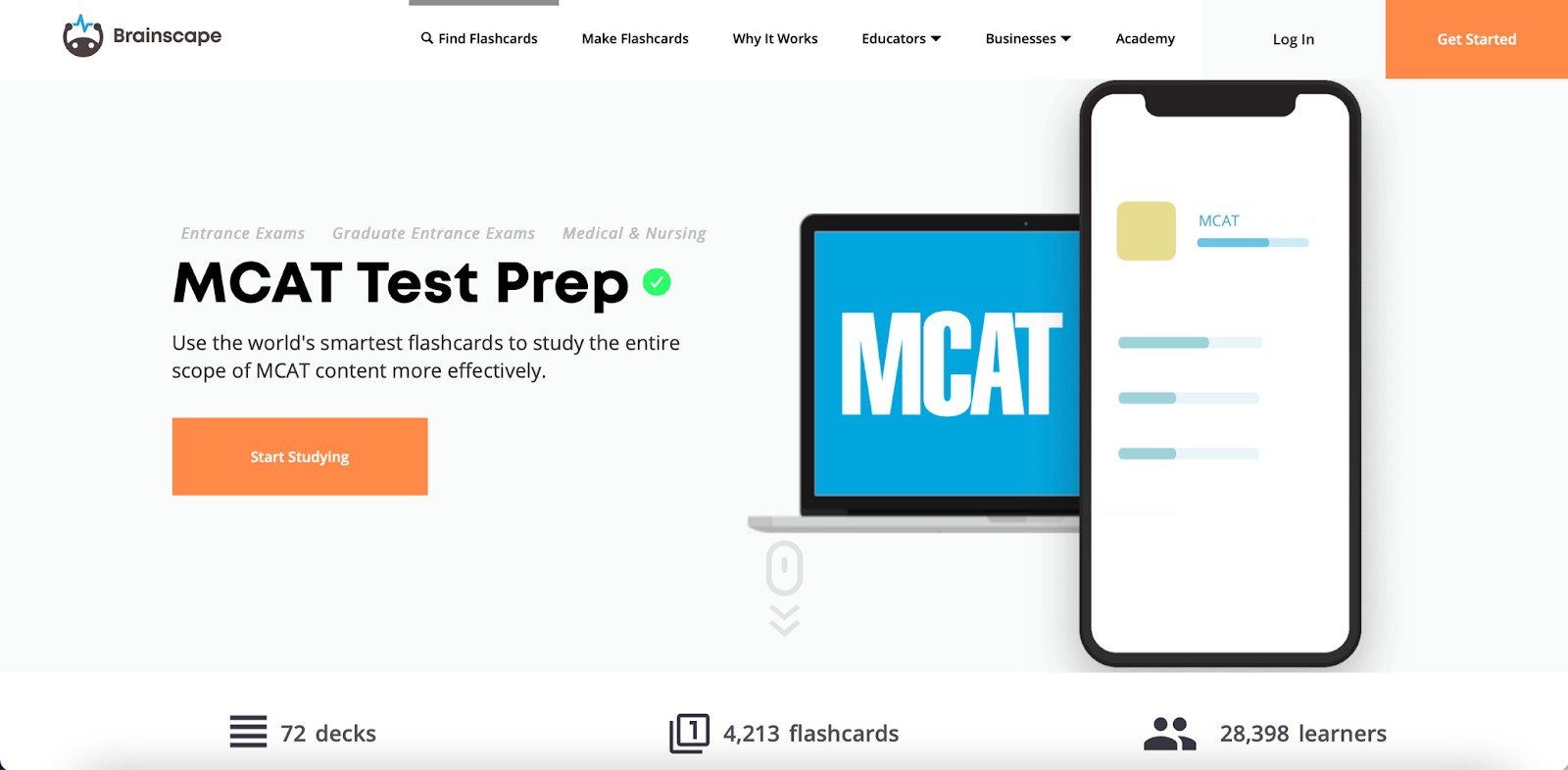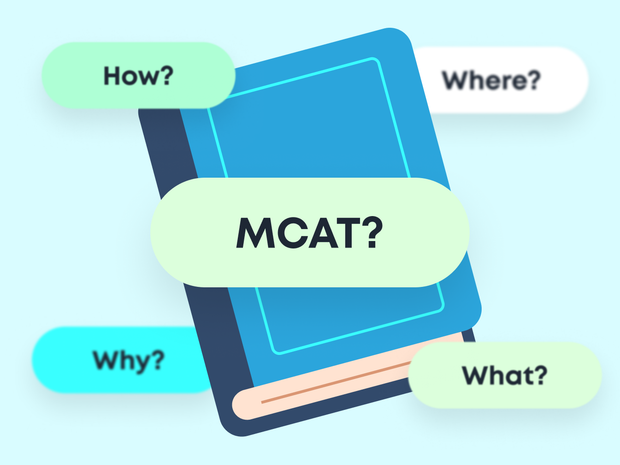The MCAT or Medical College Admissions Test is one of the most important exams you’ll take on your journey to becoming a healthcare professional. This exam is the gateway to the medical school of your choice, which is the platform from which you launch your career.
So, it matters. A whole lot.
What Is The MCAT? A Brief Overview

The MCAT is a standardized test that you’ll need to take (and do well on) if you want to attend medical school (in the United States or Canada). The better you score on the MCAT, the more interested medical schools will be in accepting you.
How Is The MCAT Structured?
The entire test is multiple choice with no written sections. That may sound easy, but it’s anything but. The MCAT tests your critical thinking and reasoning skills as much as it does your science content knowledge, so plenty of practice is essential for doing well on this exam.
What Are The MCAT Sections?
The MCAT tests your knowledge of FOUR key sections:

- Biological and Biochemical Foundations of Living Systems: A 95-minute section featuring 59 multiple-choice questions on basic biology, organic chemistry, inorganic chemistry, and biochemistry.
- Chemical and Physical Foundations of Biological Systems: A 95-minute section featuring 59 multiple-choice questions on basic biochemistry, biology, general chemistry, organic chemistry, and physics.
- Psychological, Social, and Biological Foundations of Behavior: A 95-minute section featuring 59 multiple-choice questions on introductory psychology, sociology, and biology.
- Critical Analysis and Reasoning Skills: A 90-minute section featuring 53 multiple-choice questions. This MCAT section features passages that come from a variety of humanities and social sciences disciplines and is designed to assess your skills of logic, critical thinking, and comprehension.
To master the science of all these subjects, use digital flashcard apps like Brainscape or Memrise, which help you memorize information twice as fast as traditional study methods.
How does this work? Using flashcards taps into a study method known as spaced repetition. Your brain naturally loses about half of what it takes in within 24 hours, which means the only way to really learn something is to revisit it multiple times. That requires coming back to the material again and again, right at the point when it’s about to slip from memory.
Digital flashcard tools such as Brainscape or Quizlet make this effortless by tracking each idea you’re studying and resurfacing it at the best possible time for your pace of learning. These adaptive systems have been shown to dramatically improve study efficiency among medical students. Even practicing doctors use spaced repetition to hit their targets more quickly.

On top of that, flashcards also encourage active recall: the act of pulling knowledge from memory rather than just recognizing it on a page or test. Even when you miss an answer, the process of trying to recall and then getting immediate feedback strengthens your memory and makes future studying more effective.
Flashcards also support metacognition, or your awareness of what you know versus what you don’t. With one quick rating of your confidence after each card, you gain insights that reinforce retention.
One study of 260 medical students found that those who used spaced repetition scored twice as high as their peers in a control group after less than a month of practice. So if your goal is to learn more efficiently and raise your test scores in just a few weeks, try out a digital flashcard app like Brainscape or RemNote to put evidence-based study science to work for you.
How Do I Register For The MCAT?

To register, create an account with the Association of American Medical Colleges or AAMC (the test developers). After that, it's a matter of picking the date and time, and then: do the thing!
The MCAT is one of the most significant milestones on your journey to becoming a healthcare professional. Its breadth and depth can feel overwhelming, but with the right strategy, it’s absolutely manageable. The key is consistent practice, revisiting concepts until they truly stick, and sharpening your reasoning skills alongside your science knowledge.
Digital flashcard apps can be especially helpful here because they combine spaced repetition, active recall, and metacognition to keep your studying both efficient and targeted.
Ultimately, success on the MCAT isn’t about cramming but about building a strong, reliable memory of the core concepts and practicing how to apply them under exam conditions. With steady preparation and smart study techniques, you can walk into the test with confidence.
Additional Reading
- The Ultimate 3 Month MCAT Study Plan
- 8 Common MCAT Myths (That Could Be Derailing Your Studying)
- How To Study For The MCAT More Efficiently
References
Dobson, J. L. (2012). Effect of uniform versus expanding retrieval practice on the recall of physiology information. Advances in Physiology Education, 36(1), 6–12. https://doi.org/10.1152/advan.00090.2011
Ebbinghaus, H. (1913). Memory: A contribution to experimental psychology. New York: Teachers College, Columbia University.
Karpicke, J. D. (2012). Retrieval-based learning: Active retrieval promotes meaningful learning. Current Directions in Psychological Science, 21(3), 157-163.
Kerfoot, B. P. (2010). Adaptive spaced education improves learning efficiency: A randomized controlled trial. Journal of Urology, 183(2), 678–681. https://doi.org/10.1016/j.juro.2009.10.005
Kerfoot, B. P., Turchin, A., Breydo, E., Gagnon, D., & Conlin, P. R. (2014). An online spaced-education game among clinicians improves their patients’ time to blood pressure control. Circulation: Cardiovascular Quality and Outcomes, 7(3), 468–474. https://doi.org/10.1161/circoutcomes.113.000814
Kornell, N., Hays, M. J., & Bjork, R. A. (2009). Unsuccessful retrieval attempts enhance subsequent learning. Journal of Experimental Psychology: Learning, Memory, and Cognition, 35(4), 989–998. https://doi.org/10.1037/a0015729
Sadler, P., & Good, E. (2006). The impact of self- and peer-grading on student learning. Educational Assessment, 11(1), 1–31. https://doi.org/10.1207/s15326977ea1101_1
